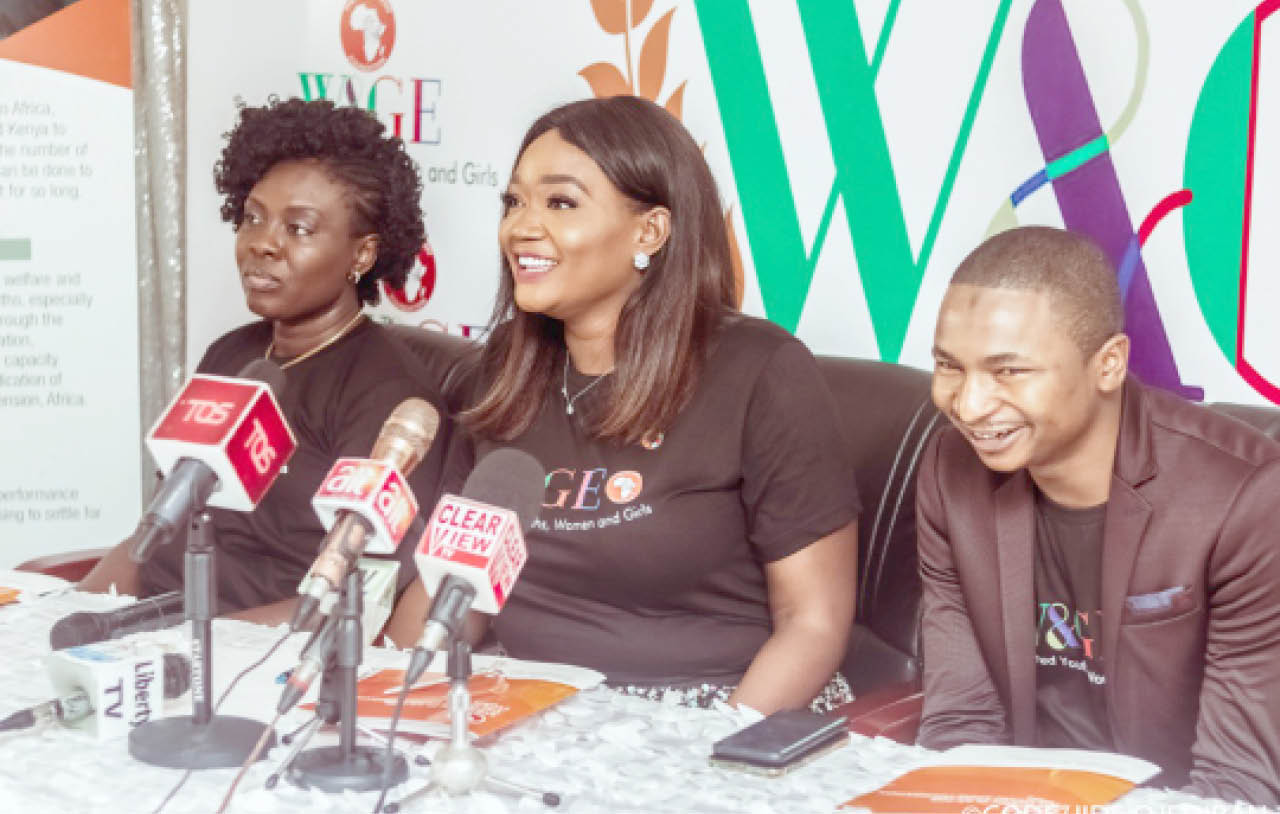Over 200 girls reached in foundation’s 10 – year plan
Women and children continue to bear the burden of vulnerability in Nigeria as a result of poverty and insurgency that have rendered many families homeless. The Executive Director of The Osasu Show Foundation (TOSF), Osasu Igbinedion, at the launch of a 10-year action plan for Women and Girls Empowerment (WAGE) and Capacity Building Incubator (CBI), […]

The Executive Director of TOSF, Osasu Igbinedion (middle), at the launch of a 10-year action plan for Women and Girls Empowerment (WAGE) in celebration of the 2020 International Women’s Day in Abuja.
Women and children continue to bear the burden of vulnerability in Nigeria as a result of poverty and insurgency that have rendered many families homeless.
The Executive Director of The Osasu Show Foundation (TOSF), Osasu Igbinedion, at the launch of a 10-year action plan for Women and Girls Empowerment (WAGE) and Capacity Building Incubator (CBI), said in order to bridge the inequality gap, the foundation had empowered over 200 girls and women within the last five years with 75 out-of-school girls recently enrolled back in schools.
Igbinidion said, “The last decade recorded a poverty index of up to 31 per cent; with women and children, bearing the burden,” and added that that was why the foundation tackled the root causes of poverty to ensure that all people, especially youths, women and girls were empowered, engaged and secured.
She said the decade of action campaign was specifically their programme area called WAGE, adding that over the next 10 years they would be implementing girl-child activities looking at education, marriage, women and girls, women in politics and maternal health.
She explained that, “A minimum of N2.5bn is needed over this decade to implement this project in the six geo-political zones and the FCT. What we intend to see at the end is reduction in inequality as we focus on the SDGs 1, 3, 4, 5, 10 and 16.
“These SDGs and their indicators seek to reduce the out-of-school children, to increase the number of girls who are getting married above the age of 18, to increase the number of women who are having safe delivery; because in rural areas where we are doing some of our programmes, women cannot afford N1,000 for ante-natal care, and this is not acceptable.”
Osasu also said they were changing the narrative and reducing the glaring statistics that were obviously affecting women.
She further said, “Nigeria is captured in the poverty data, and we need to start reducing the indices now or else the time bomb wouldn’t linger long.
“To change the narrative is going to be a collective effort, and that is why we are calling on government at all levels, development partners, public and private sectors to ensure that we are able to achieve this. Every single Nigerian must to give their support and colouration in channeling this course.”
The Minister of Women Affairs and Social Development, Mrs. Pauline Tallen, confirmed that TOSF had been reaching out in many ways to out-of-school girls and ensuring that the vulnerable groups were encouraged and supported.
Mrs. Tallen assured the foundation of government support and called on civil society organisations, donor agencies and public and private sectors to support the foundation and any other that was passionate about the plight of women and children.
She said, “I assure you that government will support the strategic plan in the key areas: girl-child education, empowerment of vulnerable groups and women in politics. These areas are key and strategic to the government and this ministry.”
The TOSF Programme Director, Nafisat Abdulmalik, said in the next 10 years, the foundation “intends to conduct activities on the following focal areas under WAGE, among other things: women’s political participation and leadership by increasing women’s representation in appointive and elective positions, while ensuring more women actively participate in intra-party activities, improve girl-child education by reducing the number of out-of-school children by ensuring access to free, quality and safe education; and maternal health by reducing the rate of maternal mortality and morbidity by increasing access to quality and affordable healthcare services through political commitment to increase the budgetary allocation for health to 15 per cent at federal, state, local government levels.
